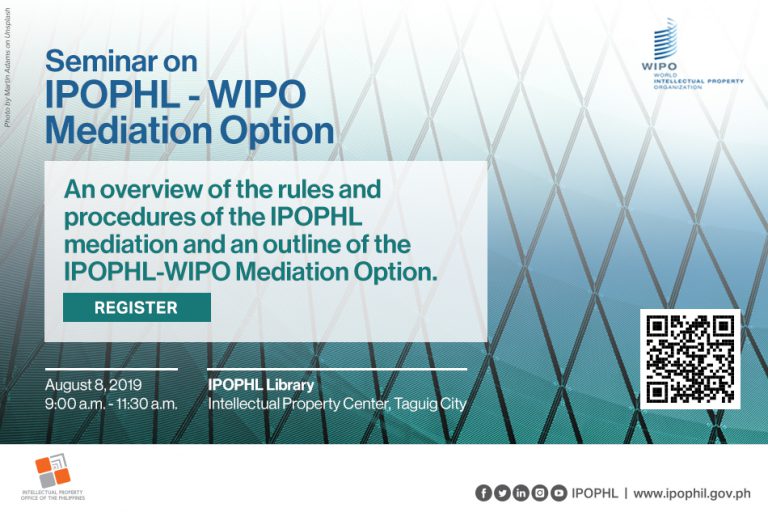
PH remains delisted from EU’s IP watch list
June 7, 2023
The Philippines has remained out of the European Commission’s intellectual property (IP) rights watch list, marking five years since the last mention of the country in 2019.
The report, released on May 17, cites “Legal uncertainties and diverging applications of the law, low level of trade secrets protection and enforcements and overall weak IPR enforcement” as the deciding factors of the priority countries.
“Our exclusion from the list from 2019 signifies that we remain an attractive investment destination to trade partners. Truly, we have come a long way in maintaining a safe IP climate in tune with global economic standards,” IPOPHL Director General Rowel S. Barba said.
The said report is a biennial publication identifying the priority countries that pose a great level of concern to the IP-laden industries of the European Union.
China tops the list as the sole country under “priority one” due to the persistence of IP rights violations through piracy and counterfeiting, paired with inconsistent IPR law enforcement and application.
Under “priority two”, the EU Commission has flagged India, particularly for the several constraints on patent protection, and Turkey, generally for their gaps in national IP enforcement.
Meanwhile, “priority three” countries consist of Argentina, Brazil, Ecuador, Indonesia, Malaysia, Nigeria, Saudi Arabia and Thailand, for varying IP protection concerns.
Despite the Philippines being delisted from the report, Barba emphasized the importance of “going beyond” the exclusion from global watch lists.
“Still, we acknowledge that there is much more work needed to be done to ensure a clean and reliable marketplace for IP rights owners across all nations. Since our last mention as a priority three in 2019, we have doubled down our efforts to safeguard our investment attractiveness, a testament to our commitment as a proactive national IP office,” Barba added, assuring the continuity of efforts to keep counterfeiting and piracy at bay.
Last May, IPOPHL successfully facilitated the addition of eight well-known brands to the E-commerce MOU, internationally recognized as one of the best practices to foster trust in online marketplaces. (See Counterfeiting and piracy reports, complaints decline in 2022)
In a recent capacity-building effort with the EU Commission-funded ARISE + Philippines, over 40 representatives of the National Committee for IP Rights (NCIPR), aided by the International Trade Centre (ITC), tackled the matter of general IP enforcement and enforcement within the digital environment.
Meanwhile, IPOPHL continues to initiate anti-counterfeiting and anti-piracy policy (ACAPP) campaigns across LGUs and the academe to deepen IP rights awareness, especially among public authorities critical in IP enforcement.
“Our whole-of-nation approach to IP enforcement does not only empower our economic landscape. This also translates to a prosperous and lasting relationship with critical trade partners such as the EU,” Barba remarked.
In fact, IPOPHL has maintained a fruitful partnership with the European Union Intellectual Property Office (EUIPO). The cooperation has made significant developments through the continuous capacitation of businesses on IP services, awareness, and enforcement.
In an effort to boost trade competitiveness, the EUIPO and the Commission have assisted IPOPHL through the IP Key SEA in progressing the country’s geographical indications (GI) mapping via a forum participated by potential GI producers nationwide.
According to the EU Commission, trade in goods in 2022 between the Philippines and the EU amounted to €18.4 billion, while 2022 bilateral trade in services amounted to €4.7 billion.
In 2021, the EU accounted for 7.9% of the Philippines’ total trade, making it the Philippines’ fourth-largest trading partner. On the other hand, the Philippines ranks as the EU’s 39th largest foreign investor, making up for 0.4% of the EU’s overall trade.







